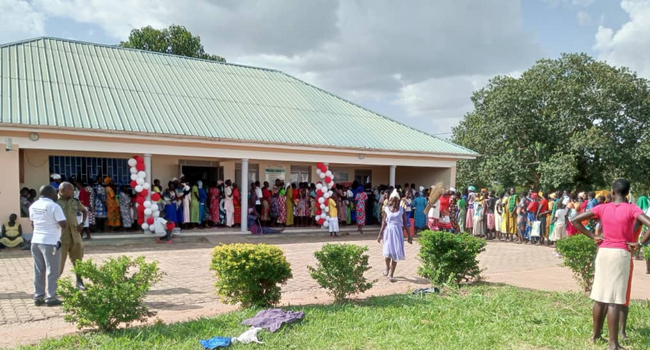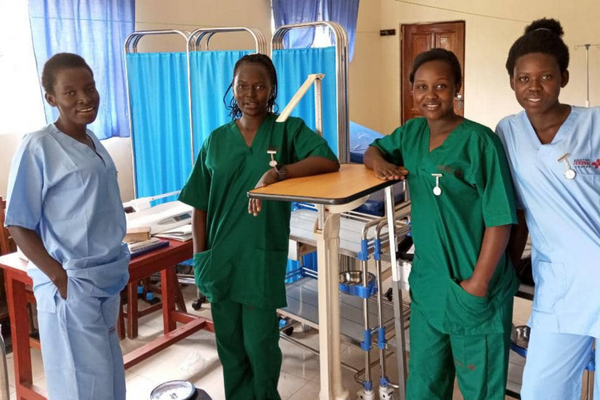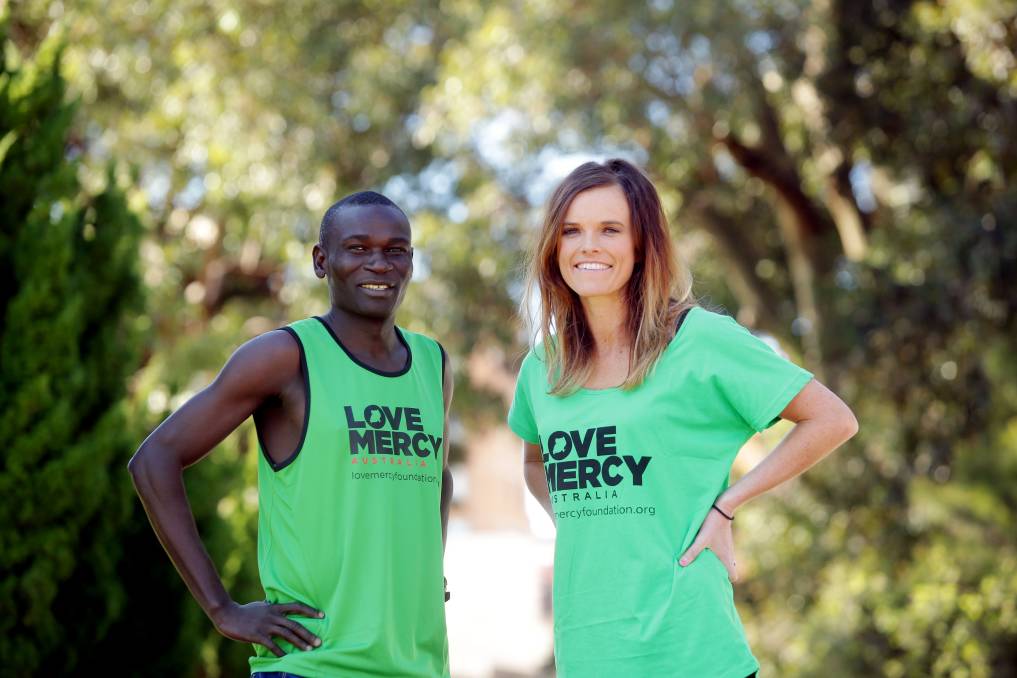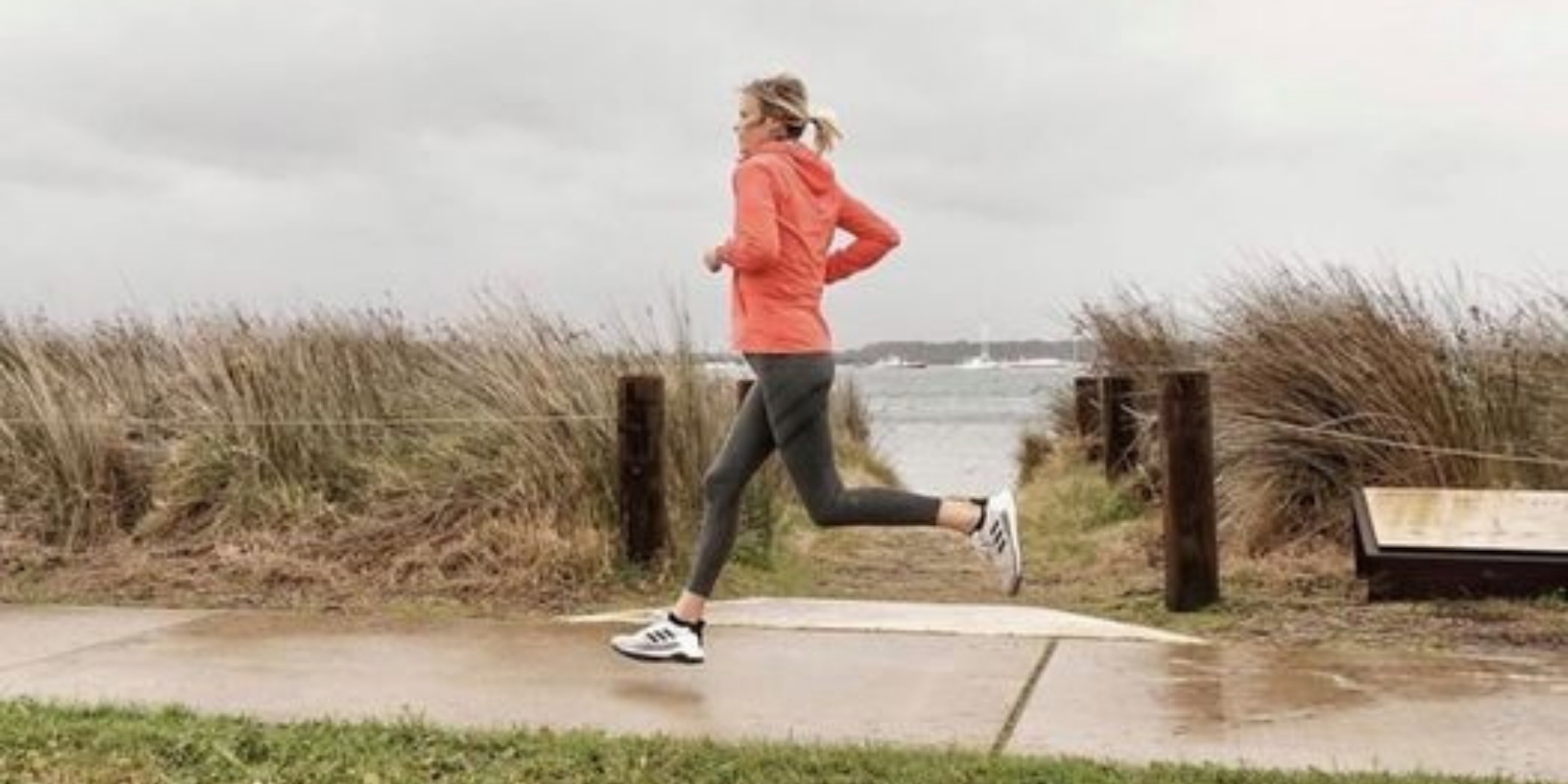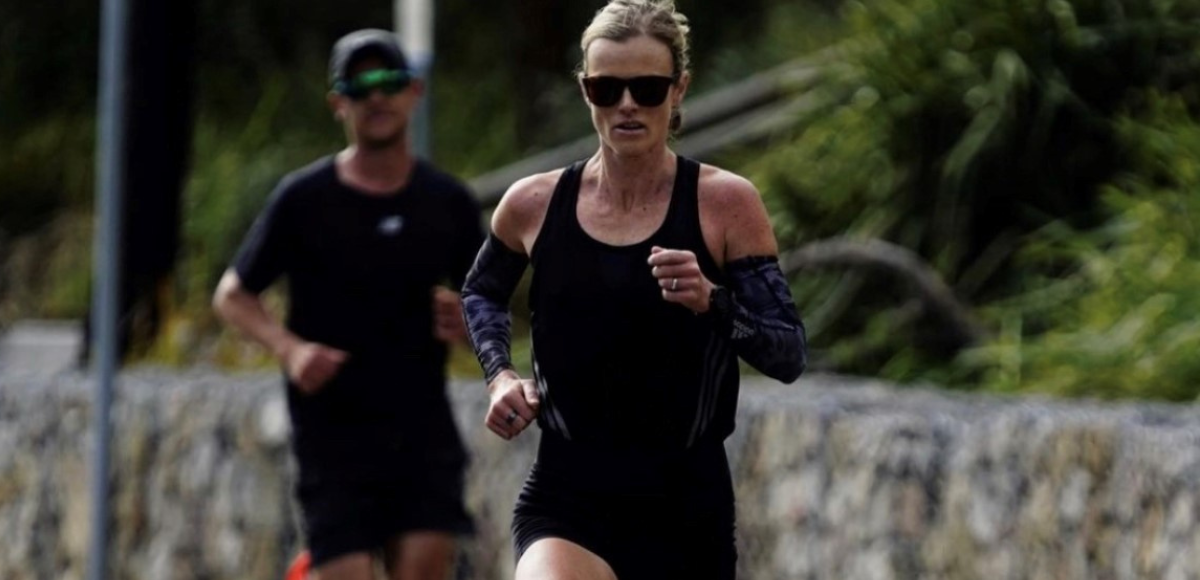More from Rachel Hardy..
 |
| Some of the children we send to school. |
A few girls at Adiwang Secondary School idly stand outside classrooms; I assume it’s morning break time. Jimmy and I sit inside the school office, sign the guestbook and chat with the headmaster. The proprietor, George, explains the vision of the secondary school uniquely for girls, the only one in the district. A math and physics educator of 36 years, he has seen how difficult it is for girls to get ahead in Uganda.
“Girls in some of the villages are still seen as cattle, and this must change,” George explains. “Girls are often the ones who do better in their studies…if they don’t get pregnant before they finish. Our heart is to see these girls succeed; Jimmy knows how it is here in the village.” Jimmy agrees, and George continues. “Parents here in the village don’t see why they should educate girls. That’s why there are girls outside and not in classrooms; their families haven’t paid their fees, and we just can’t afford to keep teaching them…yet they still show up.”
* * * * *
Upon my arrival to St. Phillips Nursery and Primary School in Lira, the kids swarm the car to the point Jimmy tells them to back up so we can walk; it’s overwhelming. I smile and ask the group how they are, a phrase even the newest to English understand here. To my surprise, the whole group responds with an “I’m fine” in perfect unison; had it not been so cute, it would have been downright creepy.
St. Phillips has over 280 students that must fit in two small buildings. Though they have land, they have no funds to build and are trying to squeeze all they can out of school fees to start the much-needed expansion. “You can see some of the bricks over there for a new building,” the headmaster says, pointing. “But we just don’t have the money to start yet.” Despite the difficulties, his ever-present smile and enthusiasm for the kids are contagious; I find myself wanting to find money for the school myself.
* * * * *
The students of Orum Primary School in Otuke see that a vehicle approaching is carrying a muzungu, and they run to meet me. The headmaster invites us in his office to chat, but I can’t help but giggle at the kids behind the building, jumping or holding each other up to wave to me through the window. I can’t wait to get outside with the kids.
Outside, the boys approach for their photo shoot, and I smile. I recognize 15-year-old Morish from my previous visit, and he likewise recognizes me, grins his huge smile and turns away bashfully. Oddly, I notice only Morish and a few of the other boys actually smile for their sponsorship pictures. When I ask Jimmy about them, he explains that those four are brothers whose father died years ago and mother is very sick with HIV. I’m floored; how those boys keep their smiles is beyond me, and my heart falls head-over-heels for the family.
* * * * *
I hear voices singing, and being the sucker for music that I am, I peek into the classroom. The music teacher invites me in, seats me at the front of the class and proudly explains that Orum Primary won first place in the area music competition, a contest that will lead to regionals, districts and a national competition in Kampala. Morish peers at me from the back row of P-6 students, grinning as the teacher suggests running through part of their program for me. They begin with a traditional Swahili tune, and I tear up; their harmonies are perfect and surprisingly good for the age of the kids. They follow with two folksongs sung in Luo, the local language. One gal recites a poem in English by heart about the burdens of being female in Africa; another student shows off his English speech on the benefits of the East African common market. Jimmy begins to push me to leave, and the music teacher asks me to say a few words of encouragement to the kids. I’m honored to do so.
* * * * *
Daniel is about 13-years-old and lives with us at the Lira house. He doesn’t remember what village he was born in, and he’s one of the former street orphans Julius found living under a bus years ago. He’s the quieter, more reserved one of the bunch, and oftentimes I find him staring into space in the living room. Finding him alone again, I sit down at the dining room table and ask how exams and school had gone this term, since school holidays were beginning the following Monday. Though his confidence in his English is weak, we discuss school in general, flip through pictures of Julius’ voyages and share pictures of my life in both France and the US.
During one part of our conversation, Daniel asks quietly, “When will you go home?” I tell him I have two more weeks in Lira, and jokingly ask if he’s trying to get rid of me. He shyly smiles and replies, “No, I don’t want you to leave.”
* * * * *
The quote that’s been on my mirror in Paris since I moved in a year ago is one from my heroine, Mother Teresa: “If you can’t feed one hundred, feed one.” Never has that quote quite meant what it means to me now, and it haunts me, for I do want to reach them all. There’s just so much to do here that it’s overwhelming; it nearly makes me want to move back to my comfortable beach life and pretend nothing ever happened. But Donald Miller nailed it: “Once you live a good story, you get a taste for a kind of meaning in life, and you can’t go back to being normal; you can’t go back to meaningless scenes stitched together by the forgettable thread of wasted time.”
The kids of Lira and the surrounding villages have my heart, and I’m ever so lucky that after this experience I don’t go back to a “normal” life wishing I could do more; I go back to complete my Masters which will enable me to return and dive head-first into a career in third-world development, in which I’ll focus on children and education. Though I’ve been recently discouraged in how one girl can make a difference, I have to remember what George at Adiwang Secondary said: “Even then the longest distance begins with the first step.”

